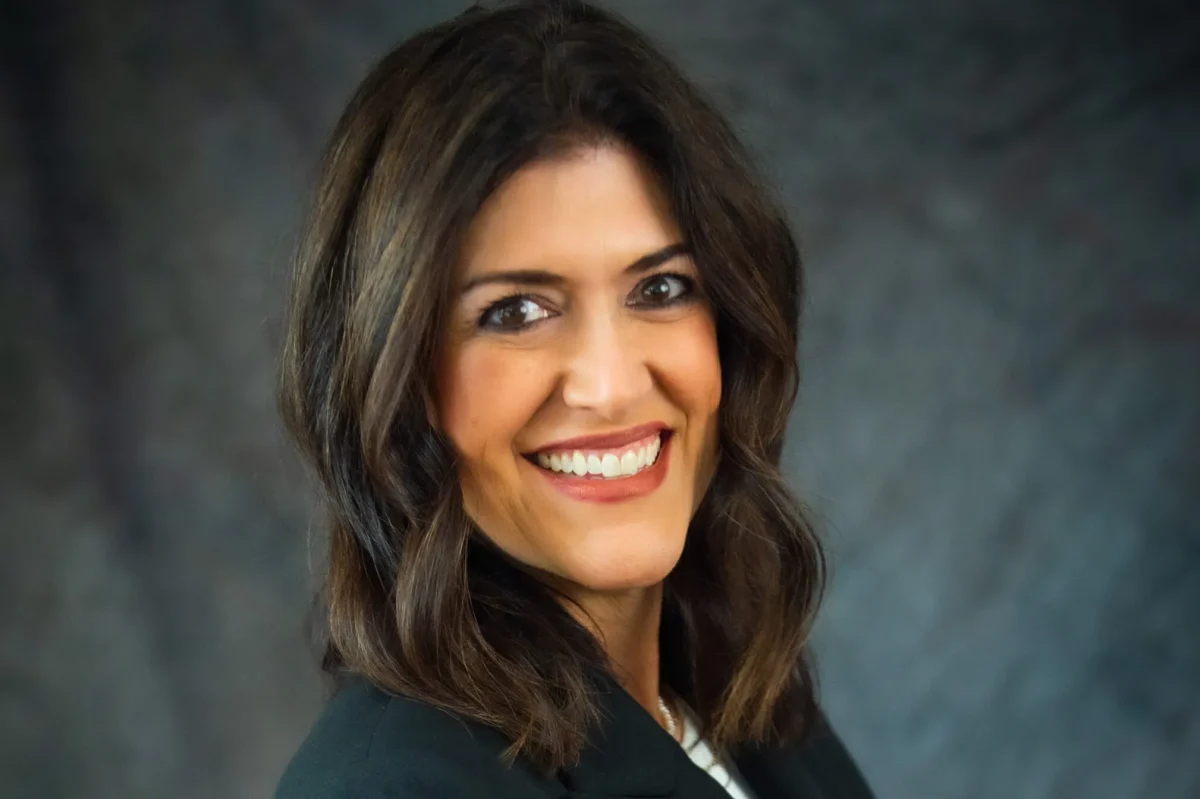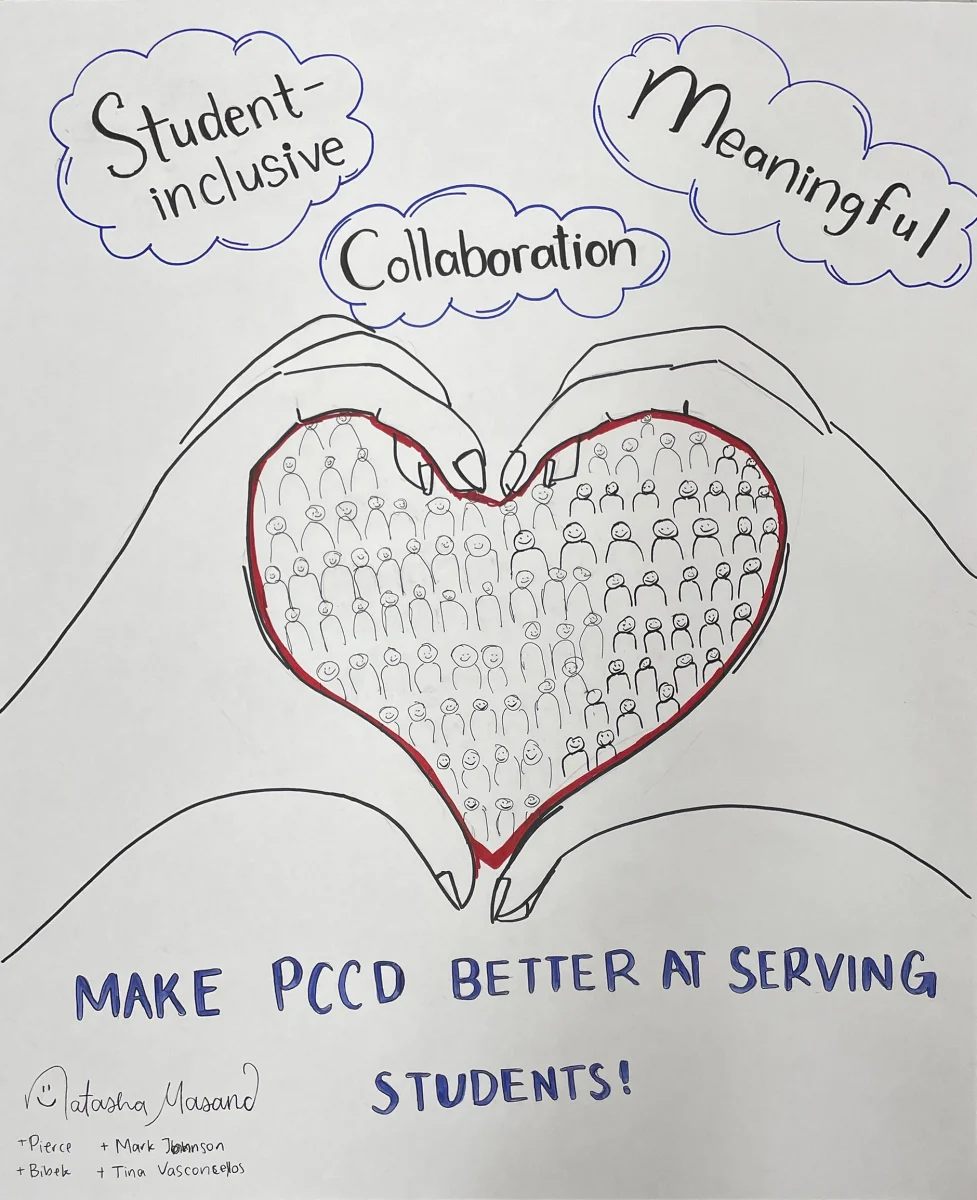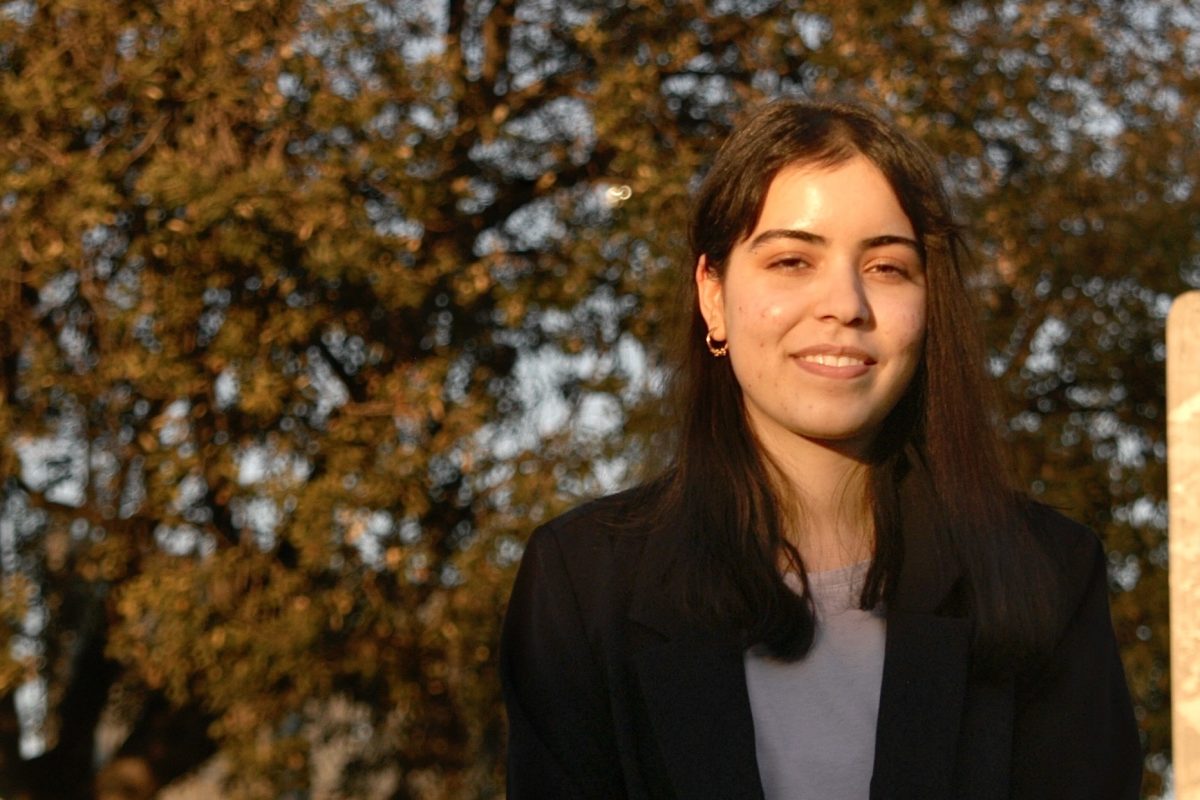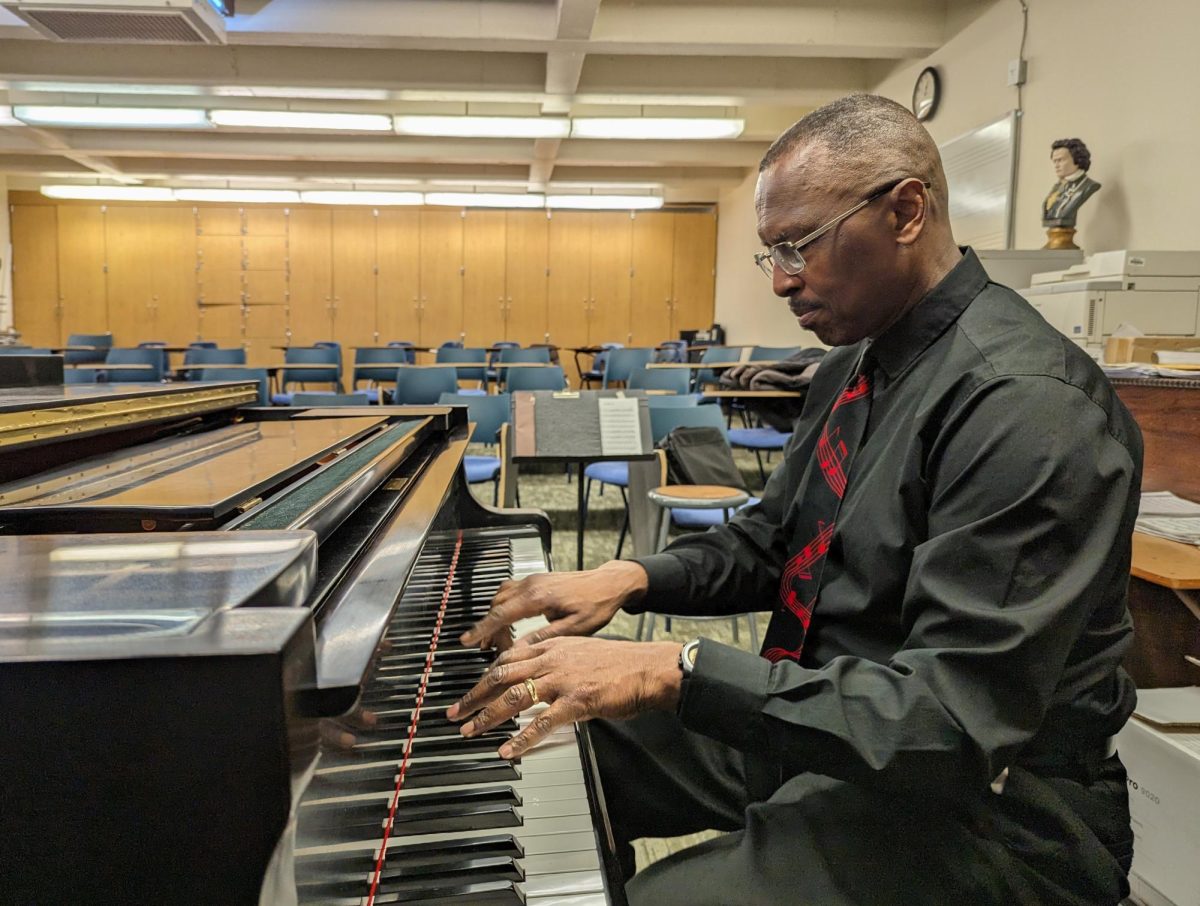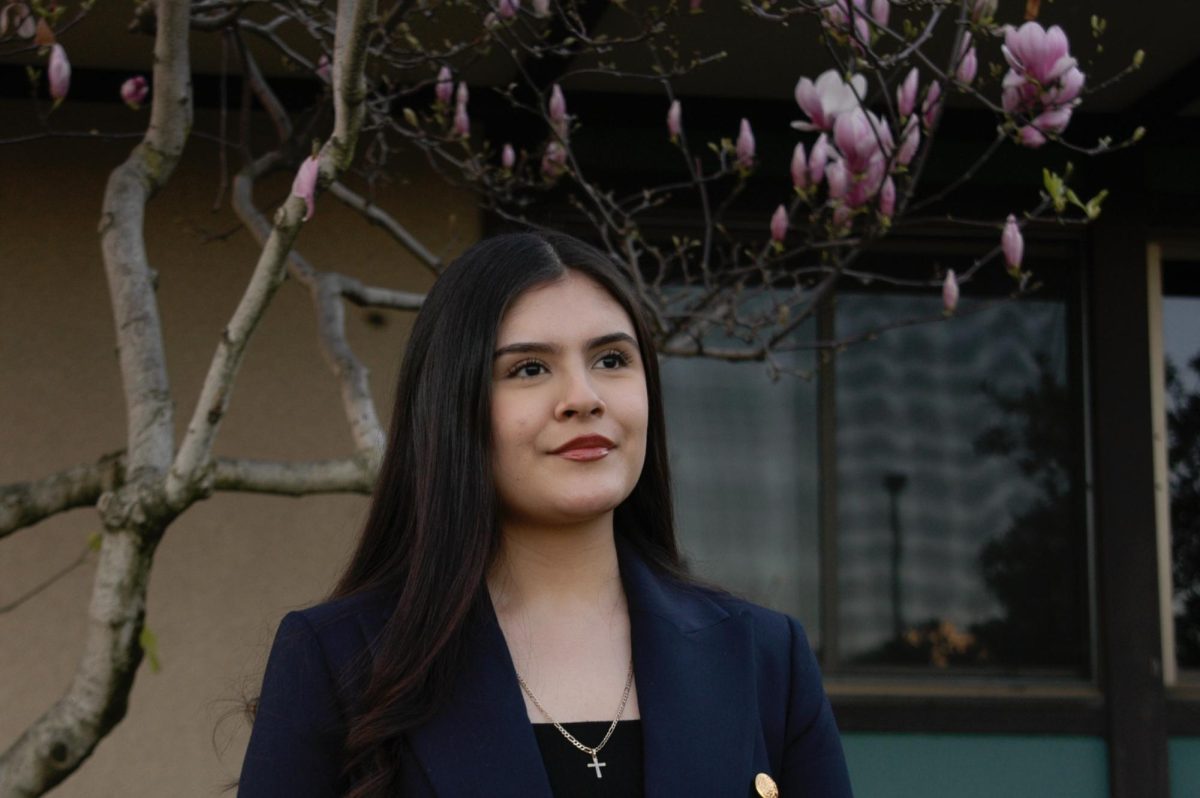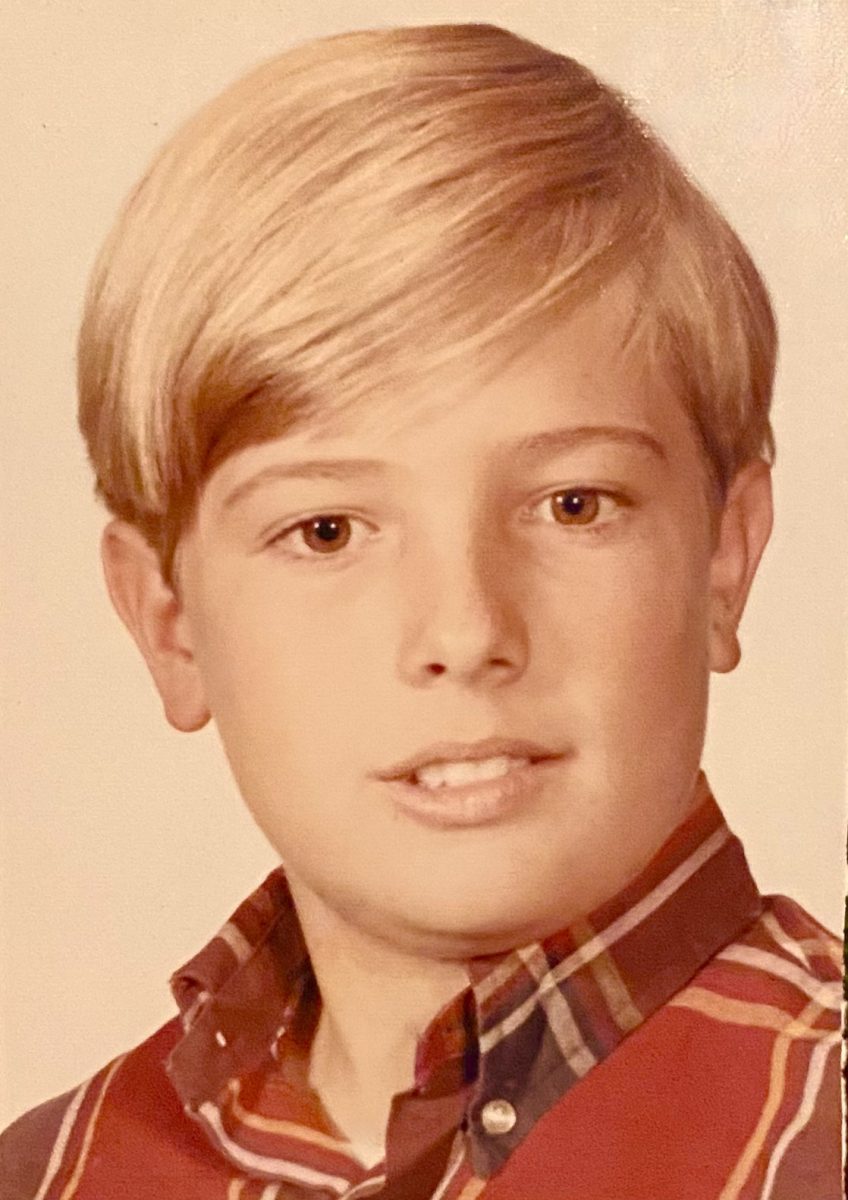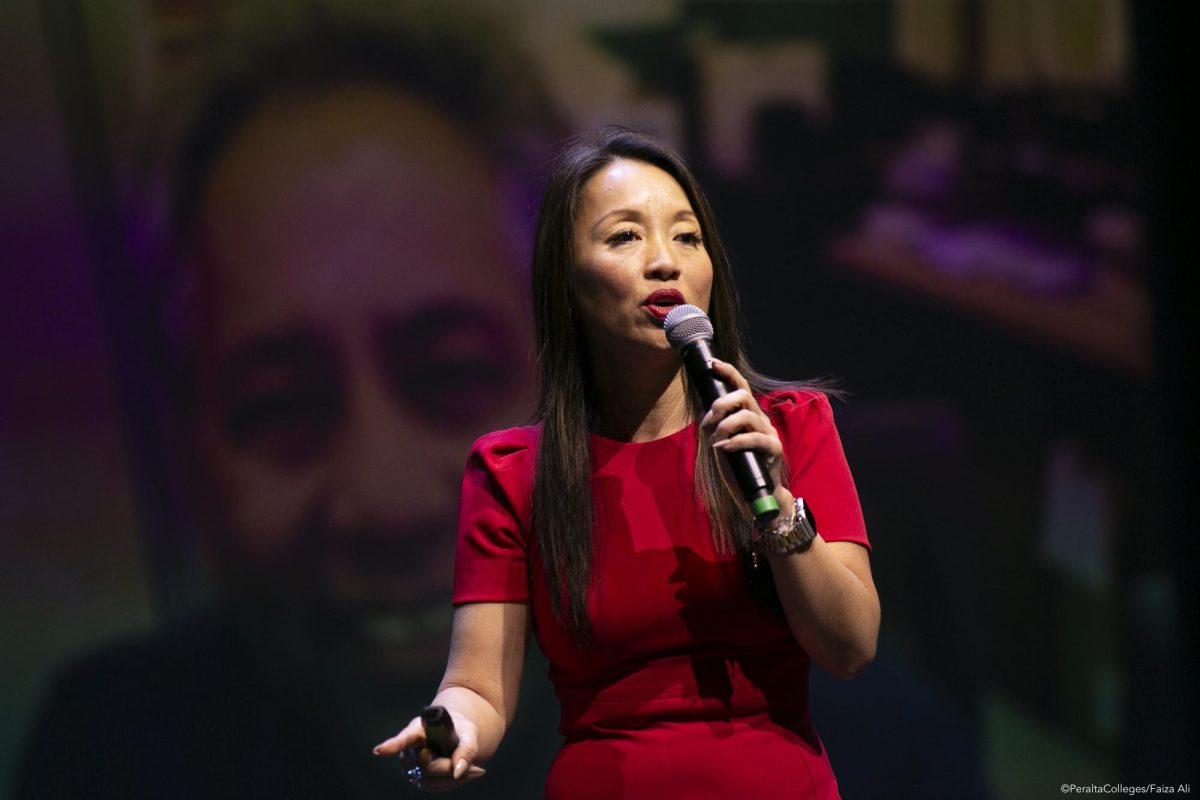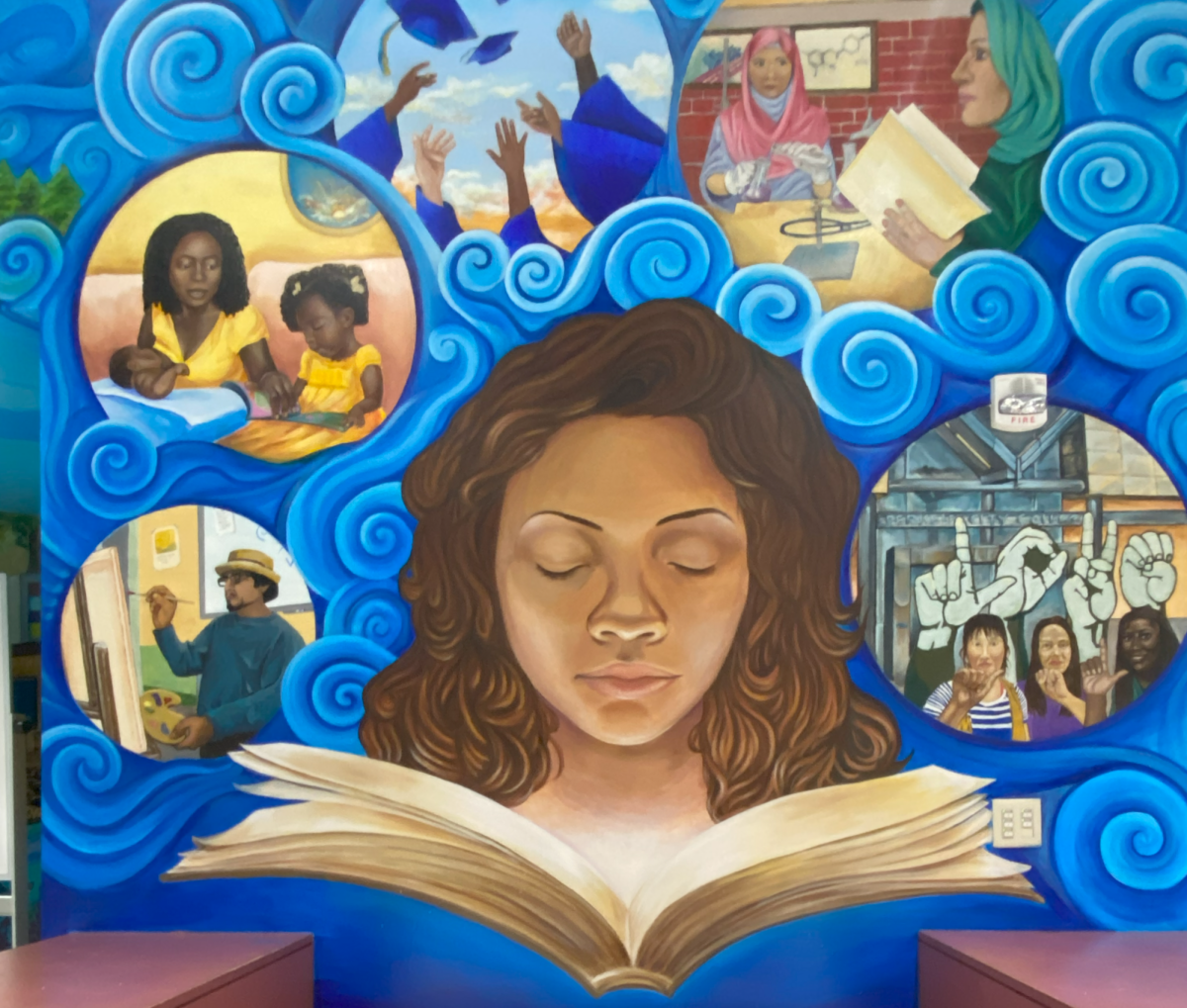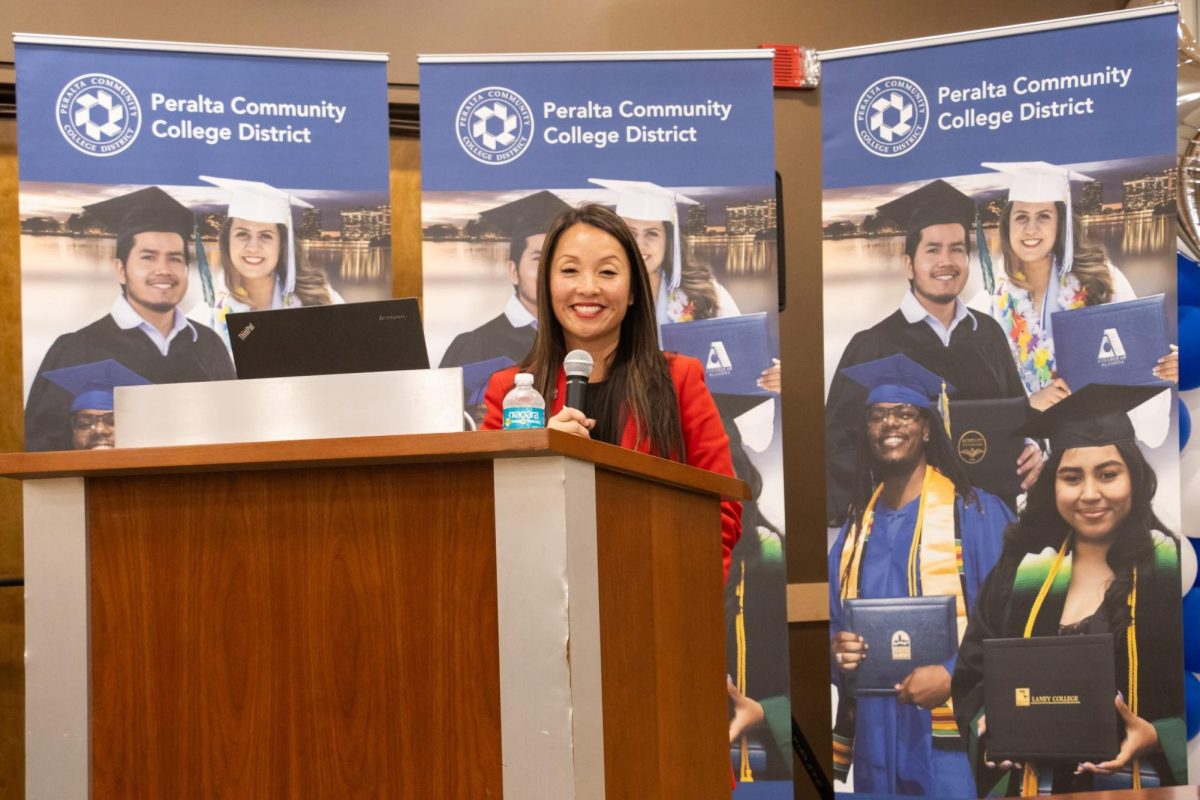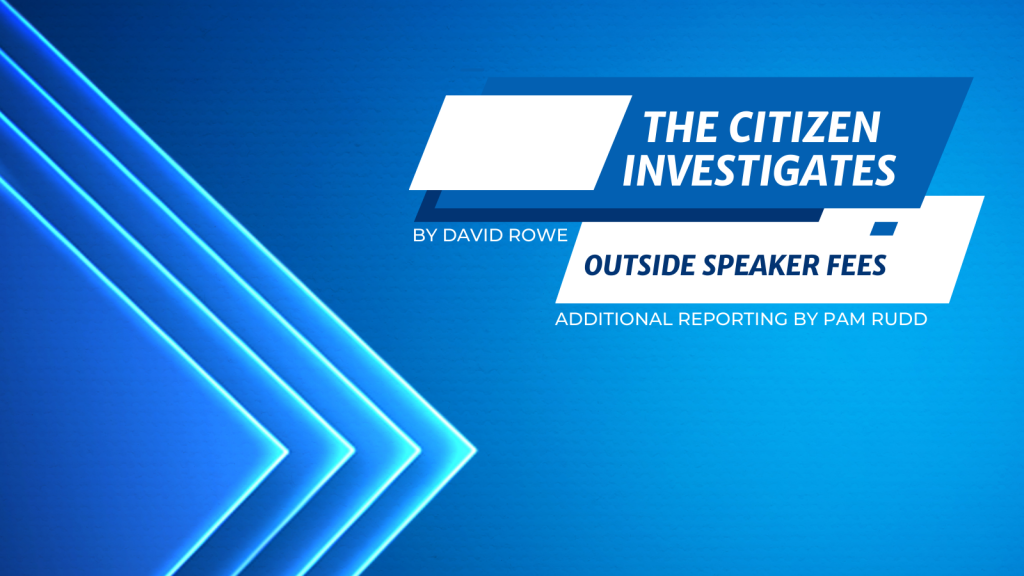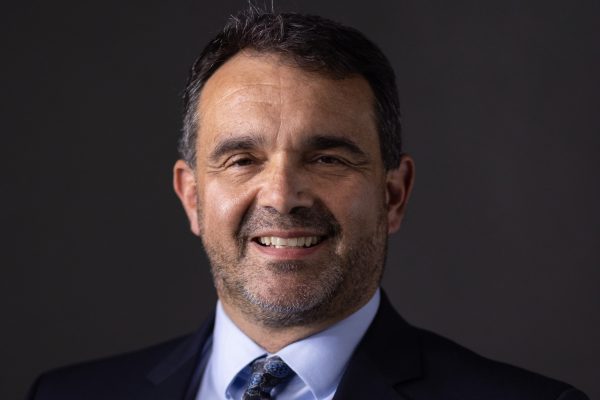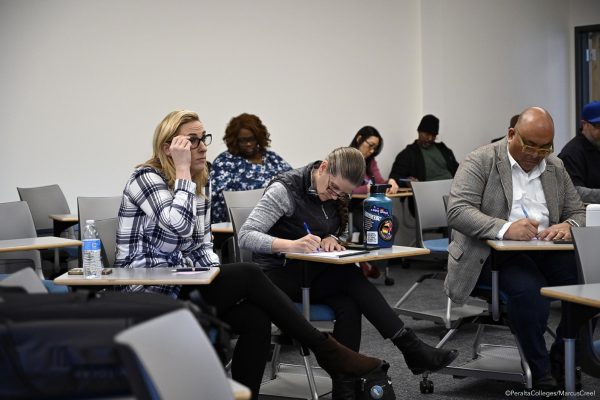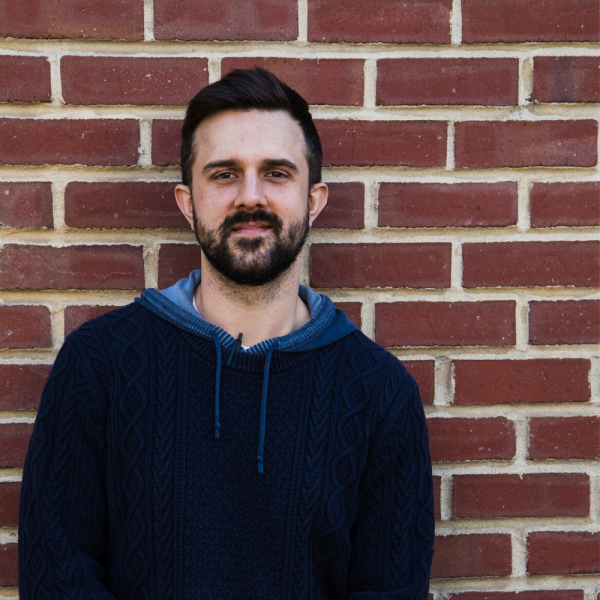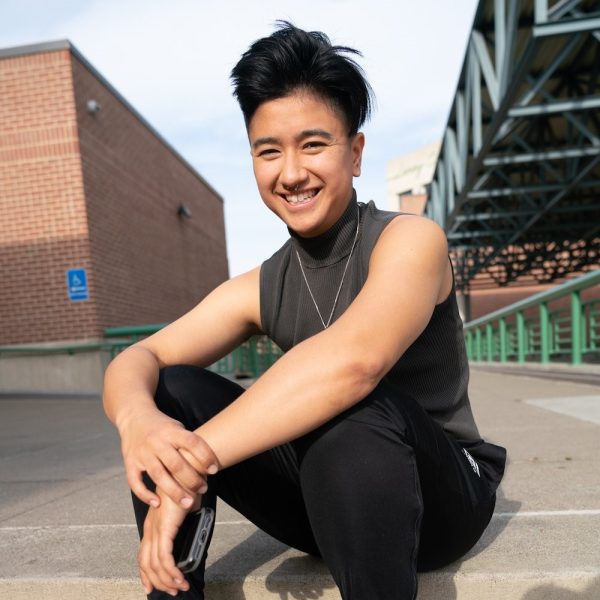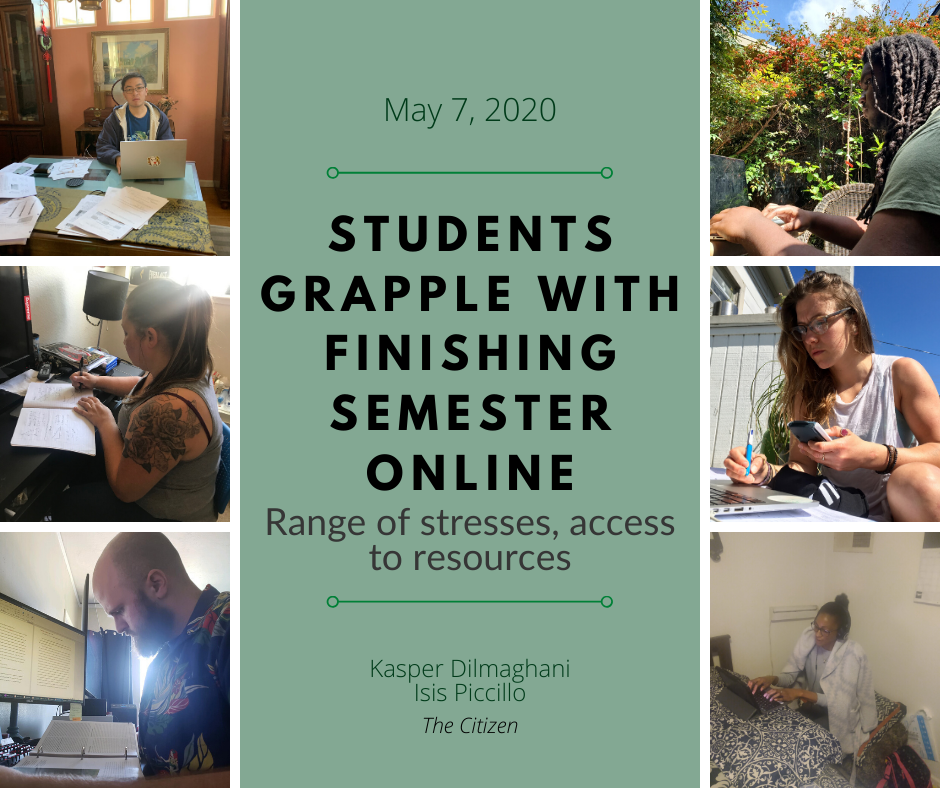
After a hastily rescheduled spring break and two weeks of cancelled classes, the Peralta Community College District (PCCD) transitioned to fully-online instruction April 6, but students’ experiences reflect a wide range of preparedness and access to resources.
Over 4,000 students have used an Excused Withdrawal (EW) to drop classes due to COVID-19 as of May 4, according to Vice Chancellor of Academic Affairs Siri Brown.
Some students juggle facilitating their children’s remote education while also trying to learn themselves. Students who are still employed struggle to balance work and school, while others grapple with the financial instability of unemployment. Even students with fewer responsibilities or consistent access to technology and the internet face hardships. The realities of attending college in the midst of a pandemic raise concerns regarding the health and safety of all students at PCCD, as well as the ability to succeed.
“I’m just trying to do the best that I can.”
Rebecca Galicia is an undergraduate student at Mills College. She is also enrolled at Laney College, where she is taking anatomy in order to complete her bachelor’s in sociology and transfer to a graduate program at California State University, East Bay. Galicia is no stranger to overcoming challenges. She is determined not to delay earning her undergraduate degree.
“I made a goal to be finished with my undergrad by the time I was 40,” Galicia said. “I’m going to be 40 this year.”
She said that in a previous relationship, her ex used to sabotage her school work.
“He used to hide my keys, and throw water on my books and stuff, to try to prevent me from going to school.”
After managing to leave that relationship almost five years ago, Galicia returned to school with a new sense of freedom. As a mother of five children; she and her current partner have worked together to take care of the kids while she pursues her education.
“I was not going to let anything hold me back and I wanted to finish so I can get on with being able to pursue a career that I enjoy,” Galicia said.
Rebecca Galicia sets up her study area off the kitchen, she pauses to check her daughter has completed her homework in Alameda April 22nd, 2020. Kasper Dilmaghani/The Citizen
Because of California’s stay-at-home orders, her path has become more difficult, as she balances helping her children learn online while also taking care of her own studies.
“I’m supposed to homeschool, be a teacher to them, and then also try to succeed in my own classes, which is really demanding,” she said.
Galicia has not been able to get a hold of enough laptops to be able to provide remote learning for her kids and herself simultaneously.
“We don’t have enough technology for everybody. I have my laptop, and then we were lucky to borrow a Chromebook, but only one from the school. So we’re short,” she said.
Juggling who gets access to technology and who doesn’t often leaves Galicia at a disadvantage. Since her priority now is attending to her kids learning at home, her attendance in class sometimes suffers.
“I actually forgot about my class today because I was busy helping them and then I started to do work that I felt like I needed to catch up on, and so I totally forgot about my class,” she said.
With so many responsibilities, she said finding time and focus are two of the biggest challenges she has faced.
Under normal circumstances, Galicia also relies on specific student services.
“I’m also a DSPS [Disabled Student Programs and Services] student, so I have to get those extra accommodations.”
Now, with the added challenges of teaching kids from home and learning from home, Galicia needs those accommodations more than ever, and she is doing her best to ensure she can get them.
Galicia recommends that students take extra time to communicate with their professors and be open about whatever obstacles they face; to that she added, “I’ve noticed that most professors, or anybody at the faculty are very understanding, and they do want you to succeed and help you the best that they can.”
Galicia has weathered many storms on the way to finishing her undergrad. The challenges she faces now during the pandemic are just ones in a series of challenges. “I feel like this is just part of life, and so things are gonna happen and you just have to be able to ride these waves,” she said.
“I’m just trying to do the best that I can,” she concluded.
“I’m going to finish, and that’s just it.”
Getting access to technology for the transition to online learning is fundamental to student success; maintaining the momentum to complete one’s studies is also a challenge some students are concerned with.
“I wasn’t ready for today.”
Ericka Jackson, 46, is attending Laney College for her fourth try at community college since the mid-90’s. This semester she’s enrolled in a theater class and a journalism class: a total of seven units. The rest of the week, she works as a care provider for the Alameda Health Services In-Home Supportive Services.
When Peralta classes resumed Monday, April 6, Jackson found herself struggling with Zoom. It was only her second time using the platform. Her theater instructor shared the link in their class GroupMe, but she wasn’t sure how to get it from her phone to her iPad.
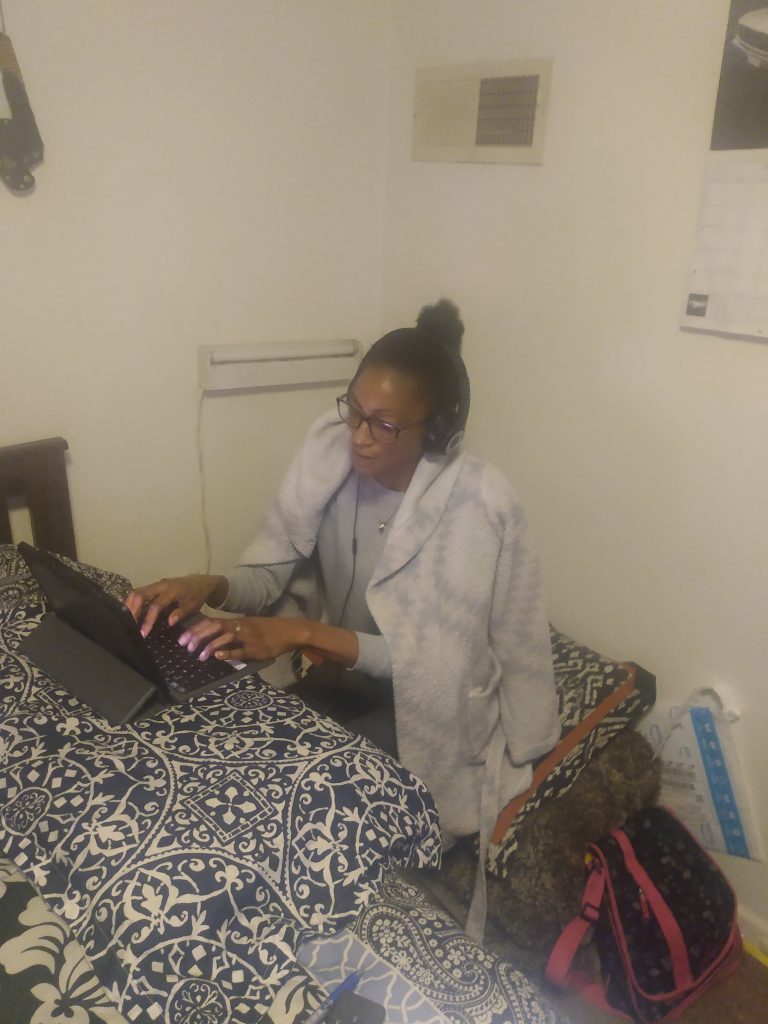
She said she used to be consistently fifteen to thirty minutes late to class and sometimes struggled to find a seat in the packed auditorium. On Zoom, that won’t be a problem.
Jackson eventually managed to open the link on her iPad, the screen of which is often unresponsive to light touches, firm taps, and hard knocks alike.
“It’s not cracked or damaged or anything, it’s just, I think it needs to get serviced,” she said. She had put off going to the Apple Store until shelter-in-place suddenly made it impossible. She purchased a Bluetooth keyboard mid-semester that helped decrease usage of the screen.
When Laney College opened a Chromebook-lending program, Jackson signed up. She can keep the Chromebook until May 27–finals week ends May 22.
With the Chromebook, Jackson said it’s been easier to complete assignments, even as she struggles to navigate new technology and also help her nephew handle his own online classes at the same time. She said she has no plans to drop her classes.
“Sometimes I wonder about [the transition] working, but I’m excited about it working,” she said, “so I won’t forget about how to go to school.”
While Jackson feels confident despite technological hurdles, other students feel more unsure.
While technology proves to be a tough commodity to get a hold of and sometimes an even tougher one to use; other students describe never really being comfortable taking online classes to begin with.
“I’ve never signed up for an online class for a reason.”
Leigh Snodgrass is a returning student with hopes of transferring and earning a bachelors of science in nursing. A part-time student this spring, Leigh was taking nine units, attempting to complete two of the nursing prerequisites. Prior to the Bay Area’s stay-at-home orders, Leigh had already been experiencing issues in her chemistry class.
“Not because of the material, I think I would actually really like the material — I just happen to really bristle against the teaching style of the professor,” she said.
The problems Snodgrass was experiencing worsened as her classes transitioned online.
“When I found out everything was going to be distance learning, I was kind of like, ‘that’s not what I wanted, and I’ve never signed up for an online class for a reason,’” Snodgrass said.
There was a lack of communication from her professor about how the class would be approaching the transition online. Even when Snodgrass emailed her professor, she received only an ambiguous response that lacked details about how she was expected to return as an online student.
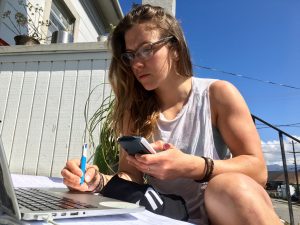
“Our anatomy teacher has been super on top of things, and has been sending us a lot of information in the interim: of what things will look like and what the expectations are and when we will meet,” she said.
However, even anatomy had its share of disappointments. Snodgrass had been looking forward to the hands-on learning involved with anatomy class: aspects of the class that are no longer available without face-to-face instruction.
“With the anatomy class, I’m just kind of disappointed because we were about to get into a cadaver dissection workshop, and there were also opportunities to dissect sheep brains in class and a lot more, it’s obviously a very hands on subject,” she explained.
Snodgrass intends to continue on in her anatomy class. However, the lack of communication and pre-existing frustrations regarding her chemistry class combined with the new learning format in the wake of COVID-19 were too much to overcome, “she wasn’t the professor for me, but this especially is not the format for me to suddenly pull up from below, and, you know, be able to figure it out.” she said.
By the beginning of the next week she decided to stay enrolled in anatomy, but drop chemistry and retake it another semester.
“I just kind of hit that point, it wasn’t gonna happen.” she concluded.
Leigh Snodgrass is not the only student who’s had to consider dropping classes.
“I don’t really feel too optimistic about the future.”
Jeremy Wong is a computer science major taking 15 units this semester: he plans to transfer to a four-year university. His plans have not changed due to the pandemic, but his road to completing the requirements has.
“I am considering dropping some classes, specifically my CIS [Computer Information Systems] class; I love the interaction between students. It was much easier to get advice and also help, because with computer science, there’s a lot of things that could go wrong with whatever it is you’re programming,” Wong said.
Electing whether to sign up for online versus in-person classes comes down to a personal choice for most students. According to a 2014 Columbia University study, “most students preferred to take only “easy” academic subjects online; they preferred to take “difficult” or “important” subjects face-to-face.”
Regardless of difficulty, Wong said, “I mostly am a fan of in-person classes.”
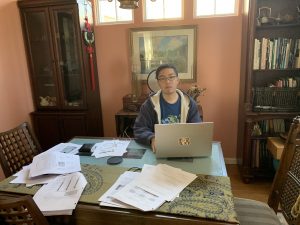
A majority of teachers share his preference, and according to a 2019 EDUCAUSE study amongst faculty, nearly 75% of faculty prefer a teaching environment that is either completely or mostly face-to-face. This is in stark contrast to 9% of faculty who reported that they prefer to teach mostly or completely online.
For Wong, taking his computer science class online is less than ideal. His initial thoughts about dropping his computer science class have persisted. The nearly three-week hiatus from classes due to COVID-19 has disrupted his study routines.
“I haven’t really had good study habits. The three weeks of no school, no classes. No pretty much, schedule, of like, my usual daily routine. It’s definitely compounded that issue a lot more,” he said, reflecting on school disruptions due to COVID-19.
Over the first week of transitioning to online learning, Wong has worried about what’s next.
“I don’t really feel too optimistic about the future, mostly in regards to returning to normal. I do want to reach that point where we don’t have to worry about the pandemic anymore. That we can go back to in-person studies, because that is definitely something that I have missed,” he said.
Like many students, he wants to know whether he needs to get used to the way things are for the rest of 2020.
“If I have to stay like this then I have to, like, start rethinking about how I study in the future, essentially.”
While some students will have to adjust to the new format of only learning online, others are more prepared to make the transition.
“I care a lot about technology, technological literacy.”
Tyler Bennett is currently waitlisted for UC Berkeley for the Fall of 2020. He is a full-time student and tutor for three classes at PCCD. For some students, such as Bennett, the transition to online learning has proved to be mostly seamless.
“I can do everything online, like, I have access to the internet, and I’m very fortunate there. I care a lot about technology, technological literacy.”
As a tutor, Bennett helps students navigate online teaching platforms.
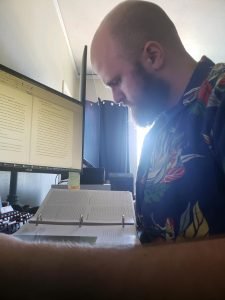
For Bennett, everything seems to point towards being ready for the transition to online learning. But current events do not come without their fair share of stresses, ones that no student has had to prepare for in any semester of community college.
“I am someone who had pneumonia in the past, and I do suffer from asthma and so, like, if I do get coronavirus I don’t think I will be able to continue to do classes,” he said.
Although Bennett may have all the necessary tools and skills to take classes online, his health vulnerabilities are a source of stress that under circumstances prior to COVID-19 were not as concerning. Due to these unexpected times certain overtures by professors are essential to ensuring as smooth a transition to online learning as possible.
Bennett said that in one class where he’s an embedded tutor, the instructor showed the type of flexibility that demonstrates compassion. In comparison, he said that in a different class, the teacher neglected to make changes to account for disruptions due to campus closures.
Students are facing stressful situations that they could not have prepared for before the semester began. Bennett hopes faculty and administration can be flexible and work with them to adapt to these unexpected times.
In addition to technology access and know-how, access to up-to-date information has helped some students process the transition more smoothly.
“A lot of students, if they weren’t a part of student government, they wouldn’t know what’s happening.”
Spencer Staggers-Elmore knows he is better equipped for the new learning environment than the average Peralta student. As Associated Students of Merritt College president, he attends district meetings and joins in administrative conversations as student leader. Staggers-Elmore is also a full-time student and tutors history and social science at the Learning Center.
Staggers-Elmore is an anthropology major and was recently accepted to the University of California, Berkeley. He will start classes in the fall.
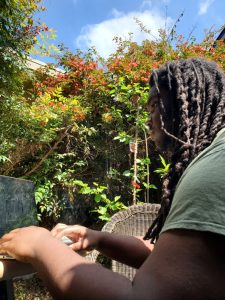
Although classes are going smoothly, he said his tutoring job at the Merritt College Learning Center has been more challenging. He works nearly 20 hours a week, in addition to 12 units of classes and his leadership position as student body president. The tutors will be using newly-ubiquitous meeting platform Zoom, which Staggers-Elmore said he’s been familiar with long before COVID-19, thanks to his work in student government.
In other ways, the shelter-in-place order has made his job as student body president easier.
He used to commute to other campuses, as far as Alameda, to meet with other campus leadership, but now he doesn’t need to leave his home for those meetings. The hours of meetings can get draining, though, especially since student leaders are expected to show their faces.
“I can’t just walk away like how other people are doing their classes in Zoom.”
Staggers-Elmore said he sees a spectrum of preparedness from students in all his roles as a classmate, student leader, and tutor. He addressed the students’ need for clearer communication from the district during the March 24 Board of Trustees meeting, while also emphasizing student appreciation for the work being done to keep instruction going.
“A lot of students, if they weren’t a part of student government, they wouldn’t know what’s happening,” he said.
Regardless of ability to seamlessly transition to online learning, all students face hardships and unknowns they could not have foreseen at the beginning of the semester.

